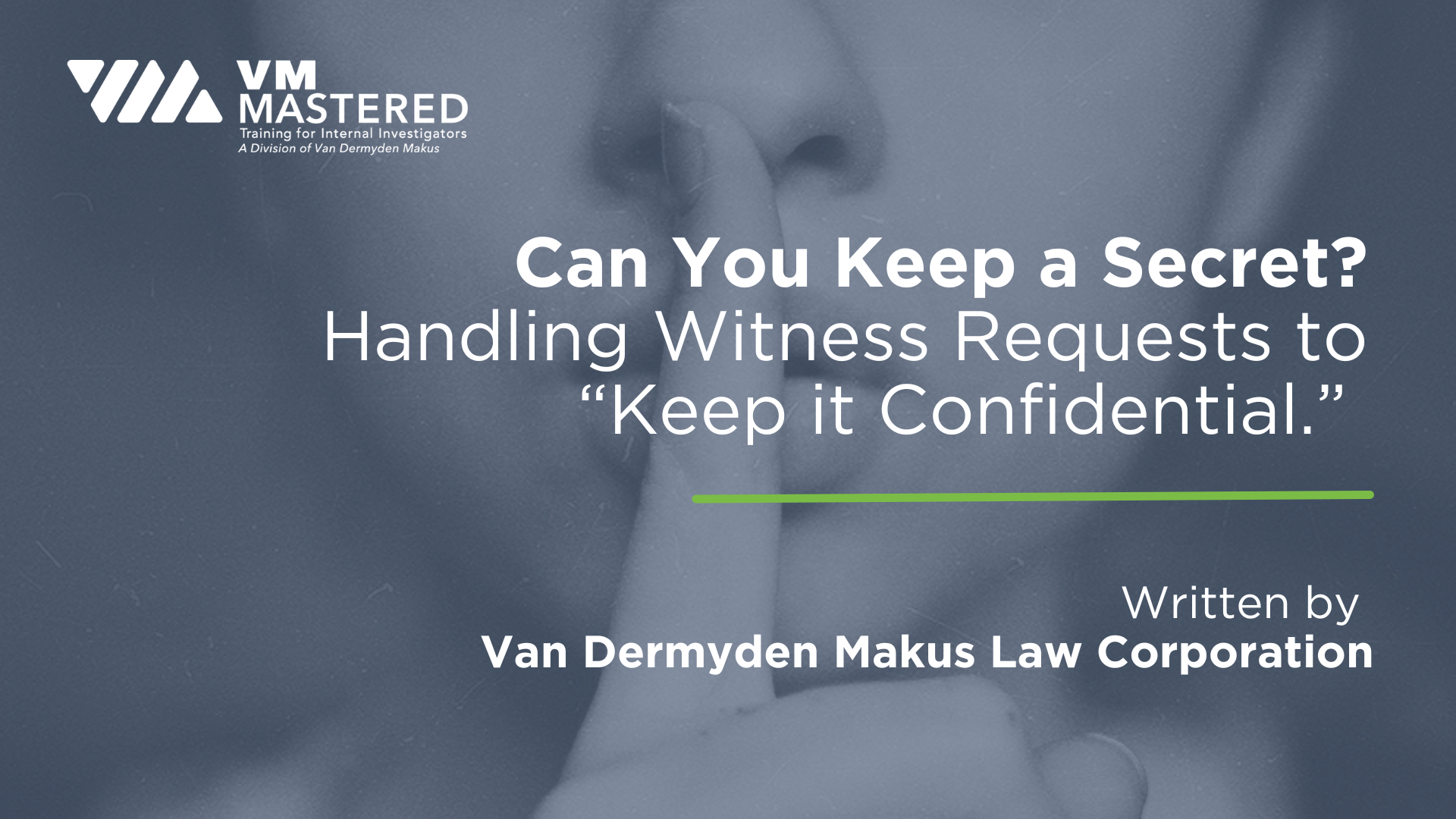Witness interviews are often the cornerstone to successful workplace investigations. In order for an interview to be effective, it is important that the witness feel comfortable being forthright with the investigator. So, how do you respond as an investigator when a witness asks if “Can you keep my information confidential”?
Although your inner truth-seeker may want reply with a resounding YES, there are several practical, and even legal, limits to promising complete confidentiality. Without being exhaustive, there are three key limitations guiding an investigator. One, an investigator must ensure that all parties have a fair opportunity to address the allegations. This may require disclosure of witness-obtained information. Two, there may be policies, laws or regulations that require disclosure of information to parties. Three, if a witness shares information indicating an ongoing safety concern, you may need to share that information with pertinent decision-makers to provide security or other resources. The resulting investigation report itself also necessarily will divulge information obtained during witness interviews.
Despite these potential disclosures, there are several steps that you can take as an investigator to candidly address witness confidentiality concerns while also creating a sense of trust and building witness rapport:
1. Ensure the Privacy of the Interview. Whenever possible, an investigator should take steps to conduct interview itself with the utmost privacy. For in-person interviews, this typically entails a private location away from potential prying eyes and ears. One option may be a conference room that is not readily in view of the interviewee’s regular work area and coworkers. For remote interviews, the investigator should address potential privacy concerns at both locations. Consider beginning a remote interview by explaining the nature of your surroundings, such as a secure room in your home outside the hearing range of others. Prepare the witness for any strange sounds or movements that might occur in the background during the interview. Invite the witness to confirm that their surroundings are likewise private and make a plan to pause the interview if the witness feels their privacy becomes compromised.
2. Explain What you Mean by “Confidential.” As indicated above, the scope of realistic confidentiality depends on the circumstances. Although you cannot guaranty strict confidentiality, in most situations you can commit to treat the information obtained during the interview carefully and limit disclosure to a “business-need-to-know.” Engaging in this dialogue with the witness an also provide an opportunity to further explain your role as investigator and reassure the witness of your neutral position.
3. Explore the Basis for the Witness’s Question. Witnesses have different reasons for asking this question. A witness may be trying to avoid office politics or perhaps simply be curious. Asking a witness to share their specific reason or concern regarding confidentiality creates an opportunity to learn more about the witness and their workplace perspective. A witness who fears reprisal or retaliation should be assured of the organization’s anti-retaliation policy. Consider offering your own direct contact information, in addition to a separate company contact, should the witness have further concern on this front.
Takeaway: Don’t shy away from candidly discussing with witnesses their desire to keep information confidential.Instead, consider it an opportunity to learn more about the witness and emphasize your commitment to a fair and neutral investigation.


